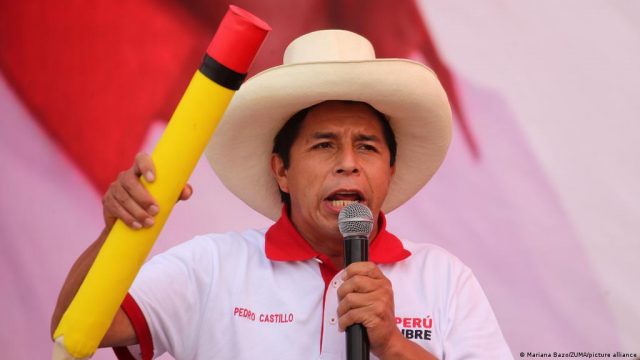The Government of Pedro Castillo in Peru remains engulfed in uncertainty after the scandal caused by the Minister of the Interior, Luis Barranzuela, when he held a party at his house that violated the restrictions imposed to contain the coronavirus pandemic. This ‘social event’ cost him his job .
The pressure for the president to dismiss an official who had been in office for barely a month further strained the political climate, a few hours after Congress resumes the session in which it will vote on whether or not to grant the second cabinet a vote of confidence. This is the second cabinet that Castillo presents in less than three months of his government, which has been marked by political instability.
The parliamentary debate will take place this Thursday, but the result cannot be anticipated because the president does not even have the support of the entire ruling party, in addition to the fact that the opposition vote is divided, explains a report by Cecilia González for RT.
However, as Barranzuela was one of the political figures that generated the greatest antagonism among the parliamentarians, the Government hopes that his forced resignation will pave the way for Castillo to finally have a stable group of governmental officials.
The former official had been involved in a series of criticisms, in particular because he was Vladimir Cerrón’s lawyer, the leader of the Peru Libre party with whom Castillo won the presidency, and who has broken his alliance with the president while he is still involved in legal cases in which he is accused of corruption.
Barranzuela also legally defended Guido Bellido, Castillo’s proposed first chief of ministers who lasted only 70 days in office and who is accused of making «apology for terrorism» for his alleged support of the Sendero Luminoso (Shining Path) guerrilla. Like Cerrón, he had his clashes with the president and returned to his seat in Congress, from which tomorrow he could vote against the new Cabinet.
Another factor that weighed against Barranzuela was the more than 150 sanctions that he accumulated during his 27 years as a senior officer of the National Police of Peru.
Political fragility in Peru
Castillo will fulfill his first 100 days of government next Saturday without having managed to sustain a cabinet and with permanent threats of destitution from the opposition, in addition to the fights and internal ruptures in his own party.
In Peru, the president appoints a cabinet that must be validated with a vote of confidence from Congress. Of the 130 parliamentarians that make up this body, Castillo needs at least 66 to vote in favor of his ‘work team’ tomorrow.
On August 26, after two long sessions, the parliament approved the cabinet headed by Bellido, with 73 votes in favor and 50 against. The wide difference gave Castillo some political breathing space.
But it did not last long, because Bellido, accused of being part of the most radical left, began to confront the opposition and, furthermore, with various ministers and even the president himself. The tension between the two reached such a point that on October 6, Bellido resigned from office, which in turn, according to Peruvian law, implies the resignation of the entire cabinet.
Castillo then appointed Mirtha Vásquez as the new president of the Council of Ministers, a leader with an image closer to progressive moderation, human rights defender and feminist.
A new endeavour
The lawyer, Vásquez, appeared last October 25 before Congress to ask for a vote of confidence with an insistent call for conciliation.
«The country is going through a very difficult time, added to the health crisis, the political tension places citizens in the middle of a scenario of tension that has lasted even after the end of the electoral campaign and the start of the Government», warned the official in a speech that lasted more than two hours.
“It is up to us to be able to build together and guide the country towards governance and collective well-being. The objective of my presence is that we achieve consensus, that we succeed in working together. Instability is not only bad for our fragile democratic system», she added.
The voting that was going to take place that same day had to be suspended due to the unexpected death of the ruling congressman Fernando Herrera Mamani, who died of a cardiorespiratory arrest.
For this reason, the crucial vote was postponed to this November 4, but, in the middle of this process, the Interior Minister held the clandestine party that was discovered by the Latina television channel and that sparked a new controversy that may impact the outcome of the debate. parliamentary.


